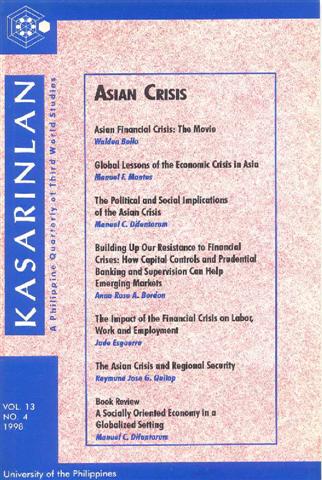The Political and Social Implications of the Asian Crisis
Abstract
Economic development has been a pivotal force for stability and regime legitimacy in Asia, the author notes, and the economic collapse of the region has showcased the complexity of the interrelationship between economics and security. The crisis has already affected domestic stability which may lead to the return of military regimes. Unemployment and poverty are transforming the apolitical middle class into a more militant one. Violence against ethnic minorities and even high ranking government officials and a growing intolerance against foreign guest workers will have serious implications in the region. Widespread strike action by unions was just the tip of the iceberg. There is uncertainty in the region's security, due to the absence of effective regional security or economic organizations wherein crisis and crisis-related issues can be resolved. The U.S. has mainly used the International Monetary Fund (IMF) as the primary agency for crisis management but this may no longer be sustainable in the future.
Published
2007-10-18
Section
Features
By submitting a manuscript, the authors agree that the exclusive rights to reproduce and distribute the article have been given to the Third World Studies Center.



